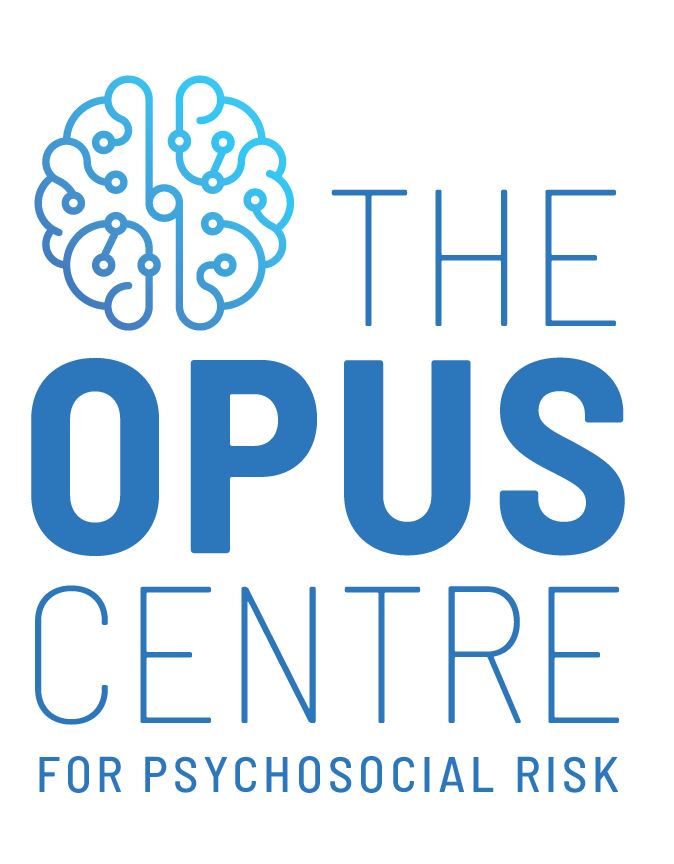

The OPUS Centre provides a range of services to meet the needs of your workplace…
The OPUS Centre provides a range of services to meet the needs of your workplace…
Psychosocial Risk Assessment Service
The OPUS Centre’s Assessment Service can help you utilise our Due Diligence Checklist to determine whether your existing policies and practices promote a psychologically safe working environment.
We can perform an assessment of your workforce data, and help you understand how data can be utilised to determine levels of risk, identify hazards and inform strategies for creating psychologically safe work systems.
This is a cost-effective service that enhances outcomes from your existing data and provides tailored actions for reducing psychosocial risk.
The OPUS Centre has designed Tailored Training Packages tailored training packages to suit each level in your organisation.
All of our training content is informed by internationally recognised best-practice psychosocial risk management and has been adapted to suit your industry in Australia.
The methods we present for risk assessment and hazard management can be adapted to suit small, medium, and large organisations.
The training is designed to build the confidence of your staff to manage work-related factors that impact psychological health and understand their responsibility to protect their own mental health and that of all their co-workers.
Find out more about Mental Health & Psychosocial Safety Training
PRC16 is The OPUS Centre’s short and easy-to use psychosocial risk assessment tool that can be tailored to suit your workplace’s needs.
The survey captures risk via user friendly language that increases participation and response rates. It is customisable to align with any organisation and provides versions suitable for different sized enterprises.
By reporting on your proactive and reactive climates it reveals risk including the potential that psychosocial hazards will occur and the likelihood of impact on worker psychological health.
The OPUS Centre’s WorkEsteem Implementation Program draws on the latest academic evidence about psychosocial risk interventions and translates the outcomes into applied practice. The methods are consistent with internationally and nationally recognised best practice.
The WorkEsteem Implementation Program can be tailored to suit you based on your industry, your organisation size, and your existing systems.
Our consultant act as a resource for your staff while actions are being implemented. This further increases the likelihood of building psychologically safe systems of work.
“We estimate that a positive ROI of 2.3 is possible through implementing effective actions to create a mentally healthy workplace.”

Experience the benefits at all levels of the business…
BOARDS &
DIRECTORS
- Expert advice on how to meet directors legislated psychological health and safety obligations
- Access to world leading evidence based approaches
to managing psychosocial hazards and improve productivity - Obtain key indicators and benchmarking for psychosocial risks within the workplace
CEO & SENIOR MANAGEMENT
- Reporting on the psychological health and safety of staff
- Retain your corporate knowledge in the midst of staff turnover and change
- Advancing education to HR & WHS staff
- Cost effective access to psychological health and safety expertise
CORPORATE SERVICES
(HR & WHS)
- Best practice research, advice and industry resources at your fingertips
- Co-design of evidence based strategies and interventions to improve health, safety and productivity
- Regular reporting to identify risks and inform opportunities
- Develop a more proactive approach to psychological safety
YOUR
EMPLOYEES
- Improved assistance for mental health and wellbeing
- Greater communication and understanding of psychosocial risks and obligations
- A more supportive culture increasing satisfaction and wellbeing at work
- Confidence to raise concerns and provide feedback to improve health and safety
